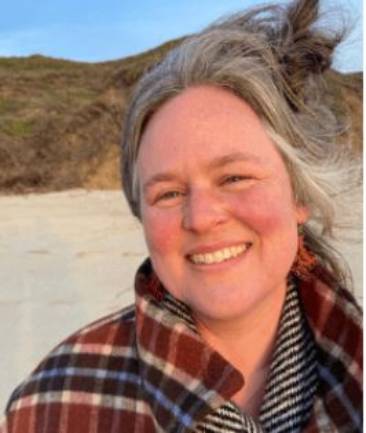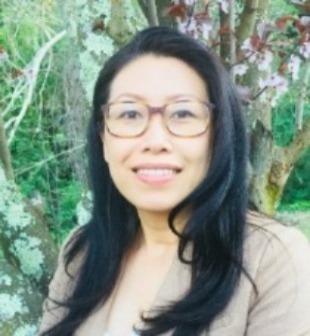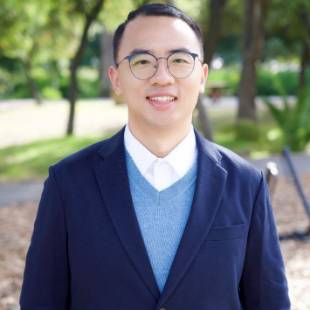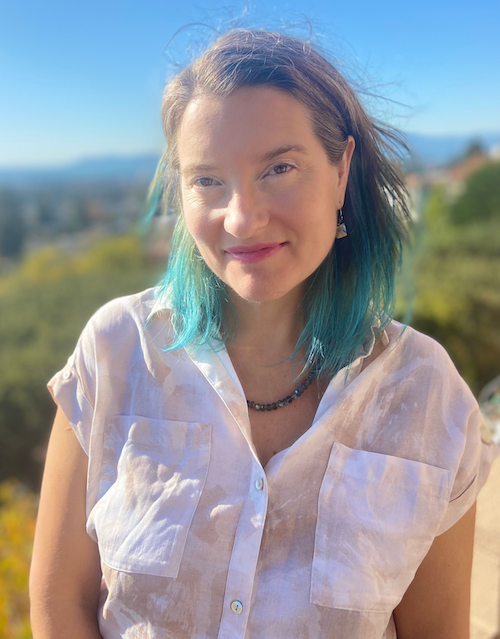RSCA in Five: Transformation and Rites of Passage
The term “transformation” has many psychological, physical, social, and cultural dimensions, and traverses disciplines. Transformation can include human development; the role of trauma and healing in shaping identity; and rites of passage in the life cycle. It can be individual and global; subjective or scientific. This event will focus on how humans utilize rites of passage, transmit cultural values, and experience personal growth and social change through transformation.
When: Thursday, March 20, 2025, from 11:00 a.m. to 1:00 p.m.
Where: Student Union, Meeting Room 1A
Format: One-hour program with lunch and networking thereafter
Register for the event on our RSVP form.
SJSU welcomes the following individuals who will be presenting their research.
 Mary Anderson
Mary Anderson
Talk Title: Coming of Age in a Temperate Climate
Dr. Mary Anderson is the Associate Dean for Research and Faculty Success in the College of Humanities and the Arts. She is a curious thinker, nature walker, shell collector, and peripatetic writer. Mary is a Contributing Editor for Liminalities: A Journal of Performance Studies, an open-access, peer-reviewed multimedia publication.
 Funie Hsu/Chhi
Funie Hsu/Chhi
Talk Title: May We Gather and Buddhist Ceremony as a Response to Anti-Asian Violence
Department: Humanities, College of Humanities and the Arts
Funie Hsu/Chhi (she/they) is a transdisciplinary scholar whose work melds American Studies, Asian American Studies, Buddhist Studies, Education, and other fields. Hsu/Chhi is an Associate Professor of American studies in the Humanities Department. She received a Ph.D. in Education with a Designated Emphasis in Women, Gender, and Sexuality from the University of California, Berkeley. Prior to her academic career, she was an elementary school teacher in the Los Angeles Unified School District. She is currently working on a book project that examines the popular secularization of Buddhist mindfulness in the context of American public schools. Her scholarship and essays have appeared in American Quarterly; Journal of Global Buddhism; Review of Education, Pedagogy, and Cultural Studies; Educational Studies; CATESOL; L2 Journal; The Immanent Frame; Lion's Roar; Buddhadharma; The Progressive, and elsewhere. Hsu/Chhî is a co-organizer of May We Gather, a national Buddhist memorial ceremony for Asian American ancestors.
Education
- Ph.D. - Education, University of California, Berkeley
- Designated Emphasis in Women, Gender and Sexuality
- Ed.M. - Education Policy and Management, Harvard Graduate School of Education
- B.A. - Asian American Studies, University of California, Davis
Research
Areas of Interest/Keywords
- Asian American
- American Buddhism
- Race
- Youth
- Reciting
Recent Publications:
Hsu/Chhî, F. (2024). The reincarnation of the Asian Buddhist peril: White Christian nationalism and contestations of mindfulness in K-12 public schools. Review of Education, Pedagogy, and Cultural Studies, 47(1), 21–46. https://doi.org/10.1080/10714413.2024.2348833
 Wilson Yuan
Wilson Yuan
Talk Title: Immigration & Crime in Our Neighborhoods
Department: Justice Studies, College of Social Sciences
Wilson (Yue) Yuan is an Associate Professor in the Justice Studies
Department. He received his M.S. in Applied Statistics and Ph.D. in Criminal Justice
from Indiana University Bloomington.
Education
- Ph.D. Criminal Justice, Indiana University Bloomington
Research
Areas of Interest/Keywords
- Perceptions of Crime
- Victimization
- Immigration and Crime
- Theories of Crime
- Quantitative Methods
Keywords Relating to Research
Violence, Victimization, Immigration and Crime
Recent Publications:
Nguyen, K, Yuan, Y. & McNeeley, S. (2019) Surveillance-Oriented Security Measures, School Climate, Student Fear of Crime, and Avoidance Behavior. Victims & Offenders. DOI:10.1080/15564886.2019.1679307
Yuan, Y., & Capriotti, M. R.(2019) Impact of mental health court: A Sacramento case study. Behavioral Sciences & the Law. DOI:10.1002/bsl.2421
Yuan, Y., & McNeeley, S. (2018).Fear of crime and behavioral adaptations: Testing the effects of fear of violence on unstructured socializating with peers. Deviant Behavior.
Yuan, Y., & Weihua, A. (2017) Context, network, and adolescent perceived risk. Social Science Research, 62, 378-393.
McNeeley, S., & Yuan, Y. (2017). A multilevel examination of the code of the street’s relationship with fear of crime. Crime and Delinquency, 63 (9), 1146-1167.
 Cheyla Samuelson
Cheyla Samuelson
Talk Title: A Translator's Tale: Collective Responses to Private Trauma in the Poetry of Cristina Rivera Garza
Cheyla Samuelson is Associate Professor of Spanish in the Department of World Languages and Literatures at San José State University in San José, California, where she teaches Spanish and Latin American Literature and Culture, with an emphasis on Contemporary Mexican literature. Her research interests include the relationship between ethics and aesthetics, representations of violence in recent literature from Mexico, transnational literature and literary translation. Her teaching pedagogy includes an emphasis on bringing writers from Mexico to engage with students in meaningful public facing events, including student-led original translations of contemporary writers’ work.
Education
- Doctor of Philosophy, Hispanic Languages and Literature
University Of California, Santa Barbara, 2011
Research
Areas of Interest/Keywords
- Contemporary Mexican Literature, Translation, Cristina Rivera Garza
Recent Publications:
Her translations include an essay by Cristina Rivera Garza published with Literal: Latin American Voices, poems by Balam Rodrigo in Anuario de Poesía de San Diego: Frontera / San Diego Poetry Annual: Border and Oír ese río. Antología poética de los cinco continentes and, with co-translator Ilana Luna, poems by Rivera Garza in Lana Turner: A Journal of Poetry and Opinion, The Berkeley Review of Latin American Studies, Harper’s Magazine, poetry.org and Words without Borders. With Ilana Luna, she has completed the translation of two collections of poetry by Rivera Garza.
 Suzy Ross
Suzy Ross
Talk Title: Figure-8 Model of Personal and Systems Transformation
Suzy Ross is Associate Professor in the Department of Public Health and Recreation at San José State University in San José, California. She is the founder of Suzy Ross & Associates, where she helps companies, coaches, and leaders harness the power of transformation as they change, grow, and develop. She has over 20 years of experience in transformation sciences and has developed the evidence-based Figure-8 Model of Transformation.
Education
- Ph.D., Humanities, Transformative Learning and Change, California Institute of Integral Studies
- MS, Therapeutic Recreation/Recreational Therapy, University of Wisconsin-La Crosse
Research
Areas of Interest/Keywords
- psychological underpinnings of human transformation
Recent Publications
- The Map to Wholeness